“Give me six hours to chop down a tree and I will spend the first four sharpening the axe.”
We have all heard the term democracy defined as a “government of the people, by the people, for the people”. But how many of those quoting it remember that these words were carried in on e of the greatest political speeches in history. And that speech also happened to be among the shortest. It took just around three minutes, leaving not enough time to the official photographer fiddling with his equipment to get his angle right for an exposure to take the speaker’s photograph. The speaker was Abraham Lincoln, the first Republican President of the United States of America. He spoke in the midst of the raging American Civil war of 1861-1865.
e of the greatest political speeches in history. And that speech also happened to be among the shortest. It took just around three minutes, leaving not enough time to the official photographer fiddling with his equipment to get his angle right for an exposure to take the speaker’s photograph. The speaker was Abraham Lincoln, the first Republican President of the United States of America. He spoke in the midst of the raging American Civil war of 1861-1865.
Abraham Lincoln had become the American President in 1860 on the platform of the pledge to keep slavery out of American soil. But the southern states wanting slaves to toil on their vast plantations were against the idea of abolition of slavery. Seven of these slave states came together and declared the formation of a new nation – the Confederate States of America. This triggered the civil war between the Northern (Union) and the Southern (Confederate) armies. For three long years from 1862 to 1865, the Confederate army commanded by Robert E. Lee and the Union army fought pitched battles across the American territories. The civil war started as a limited war to restore the Union. But it eventually turned into a total war to annihilate the Old South and its institutions of slavery. The hostilities ended in 1865. The Union armies won. The United States was preserved as one nation. The institutions of slavery were dismantled. But all these were achieved at a phenomenal cost to the nation. An estimated 625,000 Americans lost their lives in the campaign.
One of the fiercest battles of the American Civil War was fought in the small southern Pennsylvania town of Gettysburg. The deathly and devastating three-day fight, between the Union army led by George Meade and Robert E. Lee’s Confederate Army, at Gettysburg ended on 4 July 1863. The Confederate army was defeated. This was a major turning point in favour of the Union Army. But the Gettysburg campaign was also the biggest and the bloodiest of battles in the US civil war. Over one lakh sixty five thousand troops participated in it. An estimated 51,112 people perished. Gettysburg residents tended the wounded and dying, buried and shipped out the dead and rebuilt their shattered homes and lives. But thousands of bodies had only been shallowly entombed on the battlefield. Four and a half months later in November 1863, the process of reburying these bodies was continuing.
The Pennsylvanian administration decided to build a National Soldier’s Cemetery at Gettysburg in the memory of the scores of Union soldiers who had laid down their lives to preserve the unity of their nation and to put an end to the cruel and barbarous practice of slavery. On November 19, 1863, a function was organized for the dedication of the Cemetery. The organizers chose Mr Edward Everett as the primary speaker for the occasion.
Edward Everett was an eminent figure and one of the foremost American classical orators. He had been, at various periods in his life, the Governor of Massachusetts, an Ambassador to Great Britain and the President of Harvard. There were four published volumes of his orations. His lecture on Washington was delivered 122 times in three years. He was the natural choice for such an occasion. The organizers gave him two months to prepare his address.
President Lincoln was invited to give a few concluding remarks. In fact, the decision to invite President Lincoln was actually an afterthought. “The question was raised as to his ability to speak on such a solemn occasion…” The matter was settled just about two weeks before the date of the ceremony.
For Lincoln, the civil war days were amongst the darkest in his whole life. His popularity was at low ebb at many quarters. Even his own party men thought that Lincoln going to Gettysburg was like “the dead going to bury the dead”. Some newspaper wrote that the President was going to “make a stump speech over the graves of the Gettysburg dead as a political show”.
President Lincoln reached Gettysburg on the night before the dedication day. The sleepy little town was bursting at its seams with people who had arrived from different parts of America and the world, to attend the ceremony. Crowds gathered outside the place where the President and other dignitaries were staying. They wanted their President to make a speech. Lincoln said, “In my position, it is sometimes important that I should not say foolish things….” (“If you can help it”, someone from the crowd mocked him.) About this interaction, a White House secretary noted, “The President appeared at the door, said half a dozen words meaning nothing, and went in.”
The President had been busy dealing with the problems connected with the raging civil war. He, therefore, had very little time to prepare his speech for the dedication ceremony. After ten o’clock or so that night before the cremony, he sat down in his room to finalize his speech. He went to bed sometime after midnight.
Early next morning, the President visited part of the Gettysburg battlefield. The brokenness of the place was unmistakable. An eyewitness recalled, “…all about were traces of the fierce conflict. Rifle pits, cut and scarred trees, broken fences, pieces of artillery wagons and harness, scraps of blue and grey clothing, bent canteens…”
Cemetery Hill, the site of the consecration ceremony, had witnessed the heaviest Confederate bombardment during the Gettysburg battle. The new Soldiers Cemetery lay adjacent to the old town cemetery where a pre-war sign ironically declared: “All persons found using firearms on these grounds will be prosecuted with the utmost rigor of the law.” The parade to the Cemetery Hill had begun to move at eleven and was over in 15 minutes. But the primary speaker of the day had not arrived. The band played on till noon.
Eventually, Mr Everett arrived and was introduced. He bowed low to the President and stood there in silence, facing a crowd of around fifteen thousand and glancing over the wheat fields, the peach orchards, the green meadows and the low mountain ranges far away. His well-crafted and rehearsed address had taken note of all these. He started his speech. “Overlooking these broad fields now reposing from the labours of the waning year, mighty Alleghenies dimly towering before us, the graves of our brethren beneath our feet, it is with hesitation that I raise my poor voice to break the eloquent silence of God and Nature…” He sketched the manner in which the Greeks cared for their fallen soldiers, traced an outline of the civil war, dwelt into the concepts of state sovereignty, drew parallels from European history, elaborated upon the decisive features of the three day battle of Gettysburg and came to close his oration quoting Pericles, “The whole earth is the sepulchre of illustrious men”. He spoke for an hour and fifty-seven minutes. Oratorically, it was a brilliant gem of a speech.
The day’s program had listed Lincoln as the giver of ‘Dedicatory Remarks’. Lincoln rose to speak. The setting was sad, sobering and solemn. He delivered his address in his natural clear, steady and high-pitched voice, glancing occasionally at the two handwritten sheets he held in his hands. The speech comprised of just ten or so sentences and was over in less than three minutes. E.W. Andrews, the aide of a Union general who sat near the speakers’ platform recalled “(Lincoln) came out before the vast assembly, and stepped slowly to the front of the platform, with his hands clasped before him, his natural sadness of expression deepened, his head bowed forward, and his eyes cast to the ground…the great assembly listened almost awe-struck as to a voice from the divine oracle.”
But the President himself was not much pleased with his speech. He remarked, “That speech was a flat failure, and the people are disappointed”. That evening Lincoln took the train back to Washington. He was weary, depressed and physically unwell.
The reactions of the Press, in some cases, were more cruel and scathing. “We pass over the silly remarks of the President…they shall no more be repeated or thought of”, wrote the Patriot and Union. “The cheek of every American must tingle with shame as he reads the silly, flat and dish-watery utterance of the man who has to be pointed out to intelligent foreigners as the President of the United States”, fumed the Chicago Times. The correspondent of the London Times wrote, “Anything more dull and commonplace, it would not be easy to produce.”
However, the reporter of the Chicago Tribune wired a prophetic message, “The dedicatory remarks of President Lincoln will live among the annals of man.” The Philadelphia Evening Bulletin wrote that the thousands who would not read the elaborate oration of Mr Everett would read the few words spoken by the President, “and not many will do it without the moistening of the eye and the swelling of the heart.” And a writer in Harper’s Weekly wrote, “The oration by Mr Everett was smooth and cold…The few words of the President were from the heart to the heart. They cannot be read even, without kindling emotion…”
Everett wrote Lincoln a brief note the next day, requesting a copy of the speech: “Permit me also to express my great admiration of the thoughts expressed by you, with such eloquent simplicity and appropriateness, at the consecration of the cemetery. I should be glad, if I could flatter myself that I came as near to the central idea of the occasion, in two hours, as you did in two minutes.” Lincoln graciously replied, “In our respective parts yesterday, you could not have been excused to make a short address, nor I a long one. I am pleased to know that, in your judgment, the little I did say was not entirely a failure.”
The divergent views notwithstanding, the dedicatory remarks of the President, which came to be called as Lincoln’s ‘Gettysburg Address’ emerged as one of the greatest and most celebrated speeches in history. There are popular stories that Lincoln had scribbled his speech at the back of an envelope on the train enroute to Gettysburg. But historians do not subscribe to such a view. Lincoln was a man known for study and deep reflection. He was a painstaking writer. He was certain that as the President of United States speaking in the backdrop of a bloody civil war, every word he uttered would be scrutinized.
It is generally believed that Lincoln had written at least half or more of the Gettysburg Address on White House stationery, before his trip. It is likely that the speech was finished and finalized on the night before the ceremony. Certainly, the President had not just dashed off a copy, aboard his train to Gettysburg…
And finally, the actual Gettysburg Address…
There are at least five known copies of the Gettysburg Address in Lincoln’s own handwriting. There are slight differences in each of these texts. The version appearing in The Complete Works of Abraham Lincoln, Vol. IX, Ed. John G. Nicolay and John Hay: (New York: Tany-Thomas Co., 1905), is reproduced below.
“FOURSCORE and seven years ago our fathers brought forth on this continent a new nation, conceived in liberty, and dedicated to the proposition that all men are created equal.
Now we are engaged in a great civil war, testing whether that nation, or any nation so conceived and so dedicated, can long endure. We are met on a great battlefield of that war. We have come to dedicate a portion of that field as a final resting-place for those who here gave their lives that that nation might live. It is altogether fitting and proper that we should do this.
But, in a larger sense, we cannot dedicate—we cannot consecrate—we cannot hallow—this ground. The brave men, living and dead, who struggled here, have consecrated it far above our poor power to add or detract. The world will little note nor long remember what we say here, but it can never forget what they did here. It is for us, the living, rather, to be dedicated here to the unfinished work, which they who fought here have thus far so nobly advanced. It is rather for us to be here dedicated to the great task remaining before us—that from these honoured dead we take increased devotion to that cause for which they gave the last full measure of devotion; that we here highly resolve that these dead shall not have died in vain; that this nation, under God, shall have a new birth of freedom; and that government of the people, by the people, for the people, shall not perish from the earth.”
On the night of April 14, 1865, five days after the Confederate General Robert E Lee surrendered his massive army to end the calamitous civil war, President Abraham Lincoln was fatally shot by a famous actor and Confederate sympathiser John Wilkes Booth. Lincoln was watching the comedy ‘Our American Cousins’ at Ford’s Theatre in Washington D C, when he was shot in the back of the head at near point-blank range. Lincoln died the next morning. Referring to Lincoln’s words in his Gettysburg Address, “The world will little note, nor long remember what we say here…”, Senator Charles Summer said on 1 June 1865 in his eulogy on the slain President, “The world noted at once what he said, and will never cease to remember it…”
——————
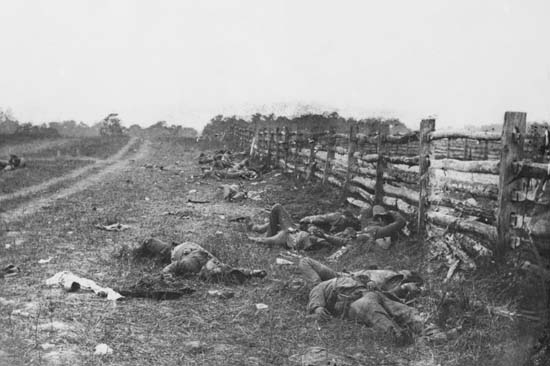
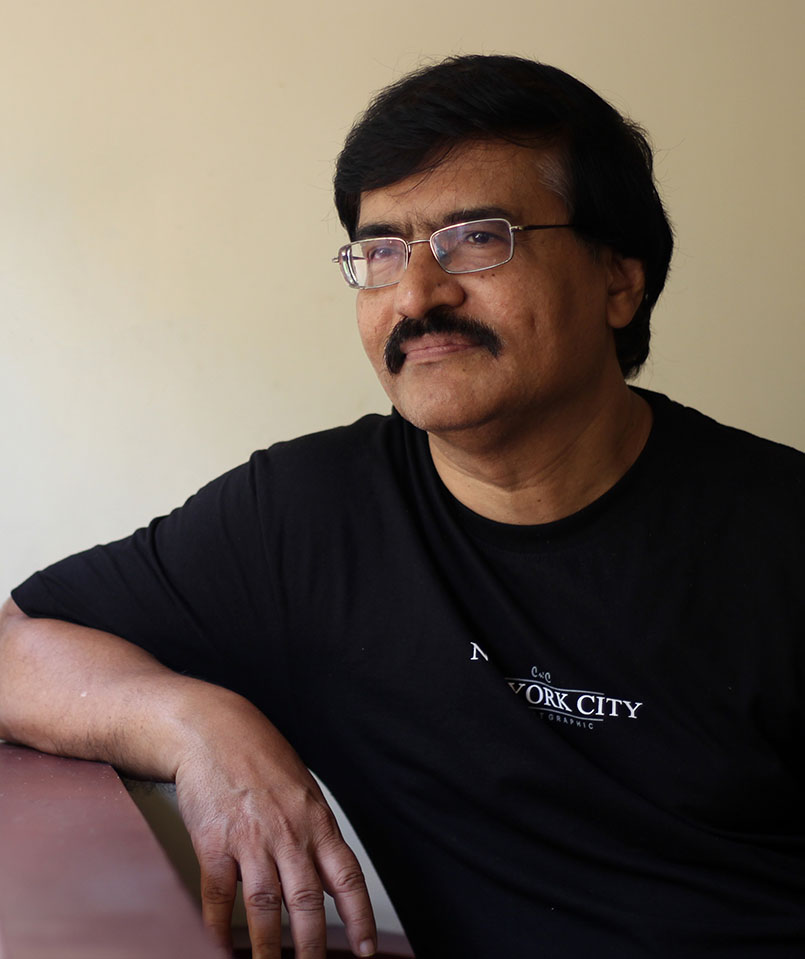

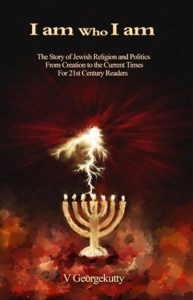
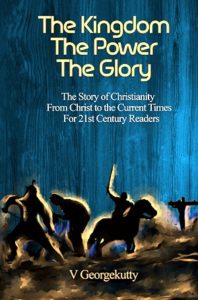



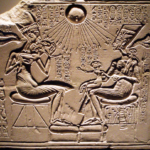

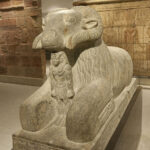

Dear Sir, Why is it that greatness encompasses men only when they are gone! History is replete with examples of men/women who in their lifetime were deplored but it is only when they became history that they were remembered for the History they had created and Lincoln is only first among (such ) equals. Whitman paid the Tribute to his Captain long ago and lets marvel the great words for the great Man:
O Captain! My Captain! our fearful trip is done;
The ship has weather'd every rack, the prize we sought is won;
The port is near, the bells I hear, the people all exulting,
While follow eyes the steady keel, the vessel grim and daring:
But O heart! heart! heart!
O the bleeding drops of red,
Where on the deck my Captain lies,
Fallen cold and dead.
O Captain! My Captain! rise up and hear the bells;
Rise up—for you the flag is flung—for you the bugle trills;
For you bouquets and ribbon'd wreaths—for you the shores a-crowding;
For you they call, the swaying mass, their eager faces turning;
Here captain! dear father!
This arm beneath your head;
It is some dream that on the deck,
You've fallen cold and dead.
My Captain does not answer, his lips are pale and still;
My father does not feel my arm, he has no pulse nor will;
The ship is anchor'd safe and sound, its voyage closed and done;
From fearful trip, the victor ship, comes in with object won;
Exult, O shores, and ring, O bells!
But I, with mournful tread,
Walk the deck my captain lies,
Fallen cold and dead.
Kind regards-adarsh
Dear Adarsh,
It is always a pleasant surprise to read your erudite and inspiring comments. .
Thanks,
kutty